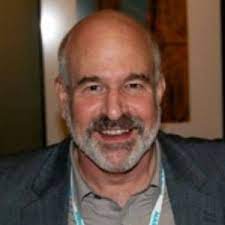Listeners:
Top listeners:
-
 play_arrow
play_arrow
99 | Mombasa’s Big Ship: Reviving Urban Mangroves by Raising Communities
-
 play_arrow
play_arrow
098 | The Case of the Tangled Titles: Unraveling the Legal Complexities of Land Ownership in the Amazon
-
 play_arrow
play_arrow
97 | The Mosaic, the Minefield, and a Manifesto
-
 play_arrow
play_arrow
096 | Encore Presentation: Tim Mohin on Overcoming Information Asymmetry in the ESG Movement
-
 play_arrow
play_arrow
95 | "Co" Benefits vs "Core Benefits:" Geoff Mwangi and His Theory of Change Steve Zwick
-
 play_arrow
play_arrow
94 | Zimbabwe's Cannabis Queen, Zorodzai Maroveke, AKA "Dr Zoey" Steve Zwick
-
 play_arrow
play_arrow
93| Digitizing Zimbabwe's Farms, with Chiyedza Heri Steve Zwick
-
 play_arrow
play_arrow
92 | COP 28 Article 6: Expectations for Final Day Steve Zwick
-
 play_arrow
play_arrow
91 | Article 6 Update from Dubai with Kelley Hamrick Malvar of The Nature Conservancy Steve Zwick
-
 play_arrow
play_arrow
90| George Thumbi: Man of a Million Trees (5th Installment, "Carbon in Kenya") Steve Zwick
- arrow_back Home
- keyboard_arrow_rightBionic Planet: More than Just a Podcast
Bionic Planet: More than Just a Podcast
Clarity in an Age of Confusion
The Knowledge-Sharing Hub

Knowledge-Sharing and More
The great tragedy of climate and biodiversity finance is that those who understand it most have their noses to the grindstone, while those who understand it least have their mouths to the megaphone.
This has always been the case, but it spun out of control once mainstream media belatedly awoke to the enormity of the climate challenge in 2018. Since then, the quantity of news, views, and “research” on climate and biodiversity finance has surged while the quality has plummeted.
This is true in all spheres of climate and biodiversity finance, but especially in coverage of market-based mechanisms.
These represent a small component of the envisioned solutions, but they enjoy broad support within the scientific and environmental communities. They’ve also evolved over several decades, and they’ve succeeded where traditional aid and philanthropy have failed.
Nonetheless, a small gaggle of outliers and ideologues has stolen a page from the science-denier handbook to convince a critical mass of malleable reporters that the opposite is true.
Proponents have failed to counter the disinformation for the same reason climate scientists failed to counter the science denial movement that delayed action on climate change for decades.
The sad fact is that half-truths, innuendo, and cherry-picked findings are difficult to counter in a populace with little understanding of the real debate.
It doesn’t help that market mechanisms are more like poker than chess and that deforestation isn’t a puzzle book with an answer key in the back. It’s a wicked problem with no simple solutions, and solutions that work tend to reflect the concurrent views of most experts and not the pet theories of outlier academics.
Existing market mechanisms were developed with the best available science under the Intergovernmental Panel on Climate Change (IPCC), and they were implemented on the principle of constant improvement. By its nature, this approach pushes its shortcomings into the public eye where honest inquirers look for ways to improve them.
Tragically, unscrupulous opponents use this same strength to undermine trust in the process — sometimes to build their own brand and other times because they simply don’t like markets.
Contrary to what many have written about me, I am not fervently pro-market. I believe the market has its place, and I believe in the process of constant improvement, as well as the folly of holding out for imagined states of perfection.
I’m also anally committed to setting records straight when I see them being spun backward, and no record has been more distortively spun than that on climate and biodiversity finance.
Opponents bear most of the responsibility for that, but opponents have also spent decades hiding from the false narrative or pushing a simplistic — and equally false — narrative of their own.
I’m devoted to giving you an accurate narrative — one you’ll find is mostly positive but remains nonetheless as flawed as our understanding of reality itself.
I’ll use this page to gradually build up trusted resources, but for now, I invite you to join the Bionic Planet LinkedIn group and stay tuned for future developments.
Steve Zwick
Bionic Planet
We’re not in a world of information overload, we’re in a world of filter failure.
Michael Lazerow Tweet

Continuing Support for Guardians of the Forest
Empowering those on the Front Lines of the Climate Challenge
Defenders of the Forest
Bionic Planet grew out of Ecosystem Marketplace, an environmental think tank and news service launched in 2005 by environmental NGO Forest Trends to bridge the gap between those with the resources to meet the climate challenge and those with the will to do so.

